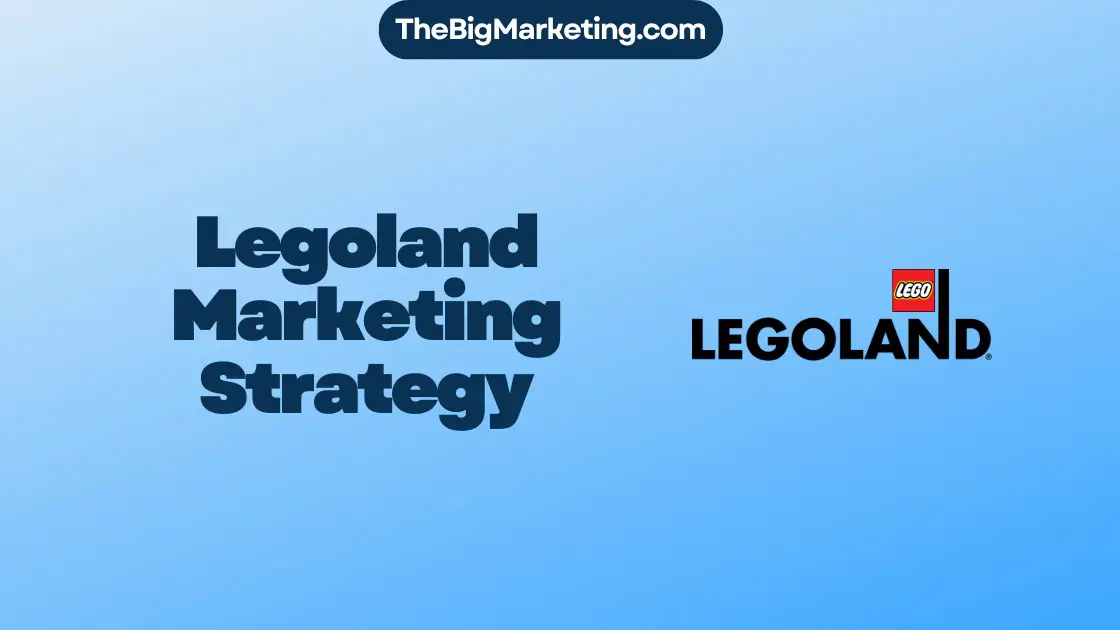A marketing communication channel refers to the medium a business uses to connect with its customers and prospects through promotional messages. It acts as a bridge between the business and its audience, allowing for effective communication. There are two types of marketing communication channels: traditional and digital.
Traditional channels include methods like print advertisements and television commercials, while digital channels encompass platforms such as websites, social media, and email marketing. Digital marketing communication channels have become increasingly popular due to their affordability, flexibility, and ability to reach a larger audience.
Key Takeaways:
- Marketing communication channels connect businesses with their customers and prospects.
- There are two types of marketing communication channels: traditional and digital.
- Traditional channels include print advertisements and television commercials.
- Digital channels encompass websites, social media, and email marketing.
- Digital marketing communication channels offer affordability, flexibility, and a wider reach.
Types of Marketing Communication Channels
When it comes to marketing communication, businesses have a wide range of channels at their disposal to connect with their audience effectively. These channels can be broadly categorized into traditional and digital channels. While traditional channels have been widely used in the past, digital channels have gained significant popularity in recent years.
Traditional Marketing Communication Channels
Traditional marketing communication channels refer to the conventional methods that have been used for decades to reach the target audience. These include:
- Print Media: Advertising through newspapers, magazines, brochures, and direct mail.
- Television: Commercials and infomercials aired on television networks.
- Radio: Advertising through radio broadcasts and sponsorships.
- Billboards: Outdoor advertising on roadside billboards.
While these channels have been effective in the past, they have become less popular due to the rise of digital marketing.
Digital Marketing Communication Channels
Digital marketing communication channels refer to the modern methods businesses utilize to connect with their audience online. These channels offer several advantages, including affordability, target audience specificity, and flexibility. Some of the most effective digital marketing communication channels are:
- Email Marketing: Sending promotional messages directly to the target audience’s inbox.
- Social Media Marketing: Utilizing social media platforms like Facebook, Instagram, Twitter, and LinkedIn to engage with the audience and promote products/services.
- Websites: Building an online presence through a well-designed and informative website to showcase products/services and engage with the audience.
- Online/Mobile Ads: Displaying ads on websites, apps, and mobile devices to reach a wider online audience.
These digital channels have gained popularity due to their cost-effectiveness, ability to target specific audiences, and flexibility in terms of content and timing. Businesses should choose the marketing communication channels that align with their target audience and goals to maximize their effectiveness and yield better results.
| Traditional Marketing Communication Channels | Digital Marketing Communication Channels |
|---|---|
| Print Media | Email Marketing |
| Television | Social Media Marketing |
| Radio | Websites |
| Billboards | Online/Mobile Ads |
Importance of Marketing Communication Channels
Marketing communication channels are vital for businesses to effectively connect with their customers and prospects. By utilizing the right channels, businesses can establish and strengthen their brand and create meaningful interactions with their audience. These channels play a key role in increasing visibility, driving engagement, and ultimately boosting sales.
Examples of Effective Marketing Communication Channels
There are several examples of marketing communication channels that businesses can leverage to achieve their goals:
- Email Marketing: Email marketing allows businesses to directly communicate with their customers and prospects. It provides a personalized and targeted approach, enabling businesses to deliver relevant messages, promotions, and updates.
- Social Media Marketing: Social media platforms such as Facebook, Instagram, and Twitter offer interactive engagement opportunities. Businesses can showcase their products and services, engage with their audience through comments and direct messages, and build brand awareness.
- Websites: Websites serve as a digital storefront for businesses, providing a platform to showcase products, services, and valuable information. They are accessible 24/7 and allow businesses to establish credibility, provide detailed product/service descriptions, and facilitate customer inquiries.
These examples highlight the diverse range of marketing communication channels available to businesses. Each channel offers unique advantages and can be tailored to suit different marketing strategies and objectives. By leveraging these channels effectively, businesses can create strong customer connections, enhance brand visibility, and drive business growth.
Digital Marketing Communication Channels
Digital marketing communication channels have gained popularity due to the increasing number of active internet users worldwide and the various advantages they offer. These channels provide businesses with cost-effective alternatives to traditional paid advertising, as well as the ability to reach a wider audience.
One of the key advantages of digital marketing channels is the ability to target specific audience segments. Through techniques like demographic and behavioral targeting, businesses can tailor their messages to reach the right people at the right time. This targeted approach improves conversion rates and leads to higher engagement from the audience.
Another advantage of digital marketing communication channels is the ability to personalize communication. With tools like email marketing and social media platforms, businesses can deliver customized messages to their customers, creating a more personalized experience. This personalization not only strengthens the relationship between the business and the customer but also increases the likelihood of conversion and repeat business.
Moreover, digital marketing channels provide valuable data and analytics that can measure the success of marketing campaigns and guide future decision-making. By tracking metrics like click-through rates, conversion rates, and customer behavior, businesses can gain insights into what works and what doesn’t, allowing them to optimize their strategies for maximum effectiveness.
The image below illustrates the advantages of digital marketing communication channels:
| Advantages of Digital Marketing Communication Channels |
|---|
| Cost-effective alternatives to traditional paid advertising |
| Ability to reach a wider audience |
| Targeted audience segmentation |
| Personalized communication |
| Data-driven decision-making through analytics |
Email Marketing as a Digital Marketing Channel
Email marketing is an essential component of any successful digital marketing strategy. It offers businesses a direct way to communicate with their leads and customers, delivering customized messages that resonate with their target audience. This digital marketing channel provides several advantages that contribute to its effectiveness in promoting products/services, building customer relationships, and inspiring customer loyalty.
Advantages of Email Marketing
1. Email marketing is cost-effective: Compared to traditional marketing channels such as print advertisements or direct mail, email marketing offers a significantly lower cost per message. It eliminates the expenses associated with printing, postage, and other physical distribution costs.
2. Email allows for personalized communication: Email marketing enables businesses to segment their audience and deliver personalized messages based on factors such as demographics, purchase history, or interests. This level of customization enhances engagement and increases the likelihood of conversions.
3. Increased brand visibility: Email marketing allows businesses to reinforce their brand identity by consistently delivering relevant and valuable content to their audience. Regular emails keep businesses top of mind and help establish trust and credibility.
4. Email marketing is measurable: With the right tools, businesses can track the performance of their email campaigns, including open rates, click-through rates, and conversion rates. This data provides valuable insights into campaign effectiveness and allows for data-driven decision-making and continuous improvement.
5. Automation and scalability: Email marketing platforms offer automation capabilities that allow businesses to set up triggered campaigns based on customer actions or specific time intervals. This automation streamlines processes, saves time, and enables scalability as businesses can reach a large audience with minimal effort.
6. Email marketing stands the test of time: Despite the rise of social media and other digital marketing channels, email remains a reliable and widely used communication tool. People check their emails regularly, making it a prime channel to deliver important messages, promotions, and updates.
7. Integration with other marketing strategies: Email marketing can be seamlessly integrated with other digital marketing strategies such as social media marketing or content marketing. By cross-promoting content or utilizing email sign-ups on social platforms, businesses can amplify their marketing efforts.
While email marketing offers significant advantages, it’s important to note that competition in this space is high. To stand out from the crowd, businesses must focus on creating compelling content, optimizing subject lines, and providing value to their subscribers.
| Advantages of Email Marketing |
|---|
| Cost-effective |
| Personalized communication |
| Increased brand visibility |
| Measurable results |
| Automation and scalability |
| Timeless communication channel |
| Integration with other strategies |
Social Media Marketing as a Digital Marketing Channel
Social media marketing has become an essential digital marketing channel, with billions of users worldwide. It offers businesses numerous advantages, allowing them to strengthen their relationships with customers, increase brand visibility, and drive engagement.
Social media platforms provide various options for creating and sharing content, including photos, videos, and text. Successful social media marketing goes beyond constant advertising and focuses on creating high-quality content that provides value to the audience.
One of the key advantages of social media marketing is the ability for businesses to directly interact with their audience. This includes replying to comments, addressing customer concerns, and offering relevant content that keeps users engaged and connected.
Advantages of Social Media Marketing
There are several advantages of utilizing social media marketing as a digital marketing channel:
- Increased Brand Visibility: Social media platforms allow businesses to reach a wider audience and increase brand visibility. By creating a strong online presence, businesses can showcase their products, services, and values to potential customers.
- Enhanced Customer Relationships: Social media provides a platform for businesses to foster deeper connections with their customers. By engaging with users through comments, likes, and shares, businesses can build trust and loyalty.
- Targeted Advertising: Social media platforms offer powerful targeting capabilities, allowing businesses to deliver content specifically to their target audience. This helps increase the effectiveness of marketing campaigns and generate higher conversion rates.
- Insights and Analytics: Social media analytics tools provide valuable insights into campaign performance and user engagement. Businesses can leverage this data to make informed decisions, refine their marketing strategies, and optimize their content.
It’s important for businesses to approach social media marketing strategically. By identifying the right platforms, understanding their target audience, and consistently delivering valuable content, businesses can successfully leverage social media to achieve their marketing goals.
Overall, social media marketing offers businesses an effective channel to connect with their audience, build brand visibility, and drive engagement. By utilizing the advantages provided by social media platforms, businesses can enhance their marketing efforts and achieve long-term success in the digital landscape.
Websites as a Digital Marketing Channel
Websites play a crucial role as a digital marketing channel for businesses, providing them with an online platform to showcase their products, services, and values. A well-designed website not only helps to build credibility but also increases visibility and enables interaction with the audience.
Optimizing websites for search engines (SEO) is vital to improve visibility and attract organic traffic. This involves optimizing the website structure, content, and design to ensure it ranks higher in search engine results. By implementing effective SEO strategies, businesses can enhance their online presence and reach a wider audience.
Website design is another crucial factor in leveraging websites as a digital marketing channel. A visually appealing and user-friendly website creates a positive user experience, encouraging visitors to stay longer and explore further. Responsive web design ensures that the website is accessible and provides a seamless browsing experience across different devices, including desktops, laptops, tablets, and mobile phones.
In addition to design aesthetics, website content is equally important in attracting and engaging the audience. Ensuring that the website provides relevant and valuable information about products, services, and industry insights helps to build trust and credibility. Adding compelling visuals, videos, and customer testimonials can further enhance the overall website experience.
Live Chat Features for Enhanced Customer Service
To provide better customer service and facilitate instant communication, incorporating live chat features into websites can be highly beneficial. Live chat allows visitors to engage with customer support representatives in real-time, addressing queries and concerns promptly. This feature not only enhances the customer experience but also increases the chances of converting website visitors into customers.
By offering instant messaging options, businesses can provide immediate assistance, showcase their responsiveness, and build strong customer relationships. Live chat features also enable businesses to gather valuable feedback and gain insights into customer preferences, enabling them to improve their products and services accordingly.
Creating a User-Friendly Website Experience
To optimize the effectiveness of websites as a digital marketing channel, it is crucial to create a user-friendly experience. Websites should be easy to navigate, with clear and intuitive menus and a logical structure that guides visitors towards their desired information. Fast loading times are essential to keep visitors engaged and prevent them from bouncing off the website.
Furthermore, businesses should focus on mobile responsiveness, ensuring that the website looks and functions seamlessly on smartphones and tablets. With the increasing use of mobile devices for browsing, having a mobile-friendly website is paramount in reaching and engaging a wider audience.
Overall, websites serve as a powerful digital marketing channel that provides businesses with an opportunity to showcase their offerings, interact with their audience, and drive conversions. By optimizing website design, content, and user experience, businesses can leverage websites to their full potential and achieve their marketing objectives.
Online and Mobile Ads as Digital Marketing Channels
Online and mobile ads are powerful digital marketing channels that offer businesses the ability to reach a wide audience and provide personalized experiences. These channels are particularly effective for large enterprise companies looking to attract new customers and drive sales. Online ads can be delivered through popular platforms like WhatsApp and Telegram, while mobile ads specifically target users on their phones.
When using online and mobile ads, businesses should craft well-designed and compelling advertising messages that capture the attention of their audience quickly. The goal is to create ads that stand out amidst the noise of online content and engage potential customers effectively.
Proper tracking of ad performance and metrics is essential to measure the effectiveness of these marketing channels. By monitoring key indicators like click-through rates, conversions, and return on investment, businesses can optimize their ad campaigns and achieve better results.
Effective online and mobile ads can drive traffic to a business’s website or social media platforms, increase brand awareness, and generate leads. By leveraging these digital marketing channels, businesses can elevate their online presence and stay competitive in the ever-evolving world of digital advertising.
Benefits of Online and Mobile Ads
| Benefits | Description |
|---|---|
| Wide Reach | Online and mobile ads allow businesses to reach a vast audience, including potential customers who may not otherwise be exposed to their products or services. |
| Personalized Experiences | With online and mobile ads, businesses can tailor their messages to specific target audiences, delivering more personalized experiences that resonate with customers. |
| Increased Visibility | By advertising online and on mobile devices, businesses can enhance their visibility in the digital space, increasing brand recognition and awareness. |
| Lead Generation | Well-designed ads can capture the attention of potential customers, resulting in increased leads and potential conversions for businesses. |
| Improved Conversion Rates | Online and mobile ads can be highly targeted, allowing businesses to reach the most relevant audience and increase the chances of conversion. |
| Measurable Results | With the use of analytics tools, businesses can track the performance of their online and mobile ads, gaining valuable insights to refine their marketing strategies. |
Conclusion
Effective marketing communication channels play a crucial role in connecting businesses with their audience. Whether through traditional or digital methods, these channels serve as a bridge, allowing for effective communication and brand-building. In today’s digital age, digital marketing communication channels have gained popularity due to their affordability, flexibility, and ability to reach a wider audience.
Digital marketing communication channels, such as email marketing, social media marketing, websites, and online/mobile ads, offer businesses valuable opportunities to engage with their customers and prospects. By optimizing their websites for search engines, creating engaging content, and utilizing data and analytics, businesses can measure the effectiveness of their marketing campaigns and make data-driven decisions.
In conclusion, businesses should carefully choose the marketing communication channels that align with their target audience and goals. By leveraging the power of these channels, businesses can drive their success in the digital age and establish strong connections with their customers.



